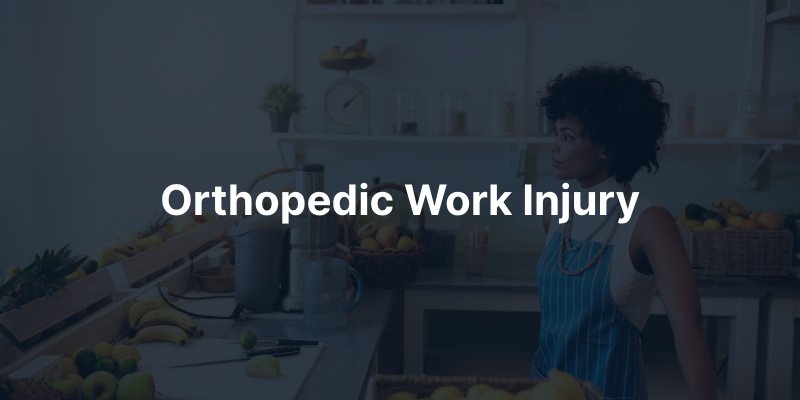In most cases, employees who sustain orthopedic injuries while on the job are eligible for workers’ compensation benefits. In some instances, there may also be third parties (entities other than the employer) whose negligence contributed to the injury. A separate personal injury claim may be pursued against the responsible parties in those situations.

Types of Compensation Available for Orthopedic Work Injuries
Here are the potential forms of compensation available for orthopedic work injuries:
- Medical Expenses: This includes coverage for all reasonable and necessary medical treatment related to the orthopedic injury. This encompasses hospital stays, surgeries, doctor’s visits, physical therapy, prescription medications, and any required medical equipment.
- Disability Benefits: Depending on the severity and permanence of the orthopedic injury, workers may be entitled to disability benefits for lost wages. These can be categorized as:
- Temporary Partial Disability (TPD): When an employee can return to work but at a reduced capacity or with restrictions, they may receive TPD benefits, which make up the difference in earnings.
- Temporary Total Disability (TTD): This is provided when an employee is temporarily unable to work at all due to the injury.
- Permanent Partial Disability (PPD): For injuries that result in a permanent impairment but do not render the worker completely unable to work.
- Permanent Total Disability (PTD): In cases where the injury leads to complete and permanent inability to work.
- Vocational Rehabilitation: This may involve job retraining, career counseling, and job placement services to help an injured worker return to suitable employment.
Third Party Claims
When pursuing a third-party claim for an orthopedic work injury, there are additional types of compensation that may be available in addition to workers’ comp benefits. These can include:
- Medical Expenses: Any medical treatment not covered by workers’ comp.
- Lost Wages: Compensation for the lost earnings that workers’ comp does not cover.
- Diminished Earning Capacity: If the injury has reduced your ability to earn income in the future, you may be entitled to compensation for this loss of earning potential.
- Pain and Suffering: Compensation for the physical pain and suffering endured due to the orthopedic injury.
- Mental Anguish and Emotional Distress: This type of compensation addresses the psychological impact of the injury, including anxiety, depression, and other emotional effects.
In certain cases where the responsible party’s conduct was particularly reckless or egregious, punitive damages may be awarded to punish and deter such behavior.
Common Types of Orthopedic Work Injuries
Here are some common types of orthopedic work injuries that lead to workers’ compensation claims:
- Fractures: These occur when there is a break or crack in a bone. They can happen due to falls, collisions, or heavy objects falling on a person.
- Back Injuries: These can range from strains and sprains to more severe conditions like herniated discs. They often occur due to heavy lifting or repetitive movements.
- Tendonitis: Inflammation of a tendon, often caused by repetitive motion or overuse of a particular joint.
- Rotator Cuff Injuries: These affect the muscles and tendons around the shoulder joint. They can be caused by overuse or sudden heavy lifting.
- Knee Injuries: These can range from minor ligament sprains to more severe injuries like torn ligaments (such as the ACL) or meniscus tears.
- Repetitive Stress Injuries: Conditions like tendinitis, carpal tunnel, or bursitis can develop from repetitive motions in the workplace.
- Joint Injuries: Including dislocations or damage to joints, such as in the shoulders, elbows, hips, or knees.
- Foot and Ankle Injuries: These can range from sprained ankles to stress fractures and other conditions due to overuse or accidents.
If you have suffered an orthopedic injury on the job, consulting a trusted Orange County workers’ comp attorney is critical to ensure that you receive the appropriate compensation. Arrange a free consultation today.
